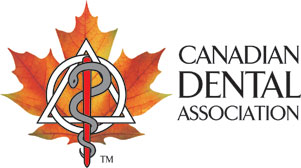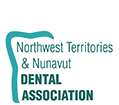May 9, 2022 – Ottawa, ON: This week, May 9-13, marks the Canadian Dental Association’s (CDA) annual Days on the Hill—an advocacy event which aims to press for changes to help improve the oral health of Canadians. CDA’s delegation, led by Dr. Lynn Tomkins, CDA president, has organized several meetings with members of parliament (MPs), senators and other government officials on Parliament Hill to offer feedback on the federal government’s commitment in Budget 2022: A Plan to Grow Our Economy and Make Life More Affordable to invest $5.3 billion over the next five years, with $1.7 billion ongoing thereafter, towards increasing access to dental care for Canadians.
“We welcome the federal government’s significant investment towards enhancing access to dental care for those who need it most,” says Dr. Tomkins. “We look forward to collaborating with the federal government over the coming months to develop an approach that will help narrow the gaps in access to dental care for our underserved populations, while minimizing disruptions for the majority of Canadians who already have dental coverage.”
Over the course of the week, members of CDA’s delegation will meet with The Honourable Jean-Yves Duclos, Minister of Health; The Honourable Kamal Khera, Minister of Seniors; The Honourable Dan Vandal, Minister of Northern Affairs; The Honourable Candice Bergen, Leader of the Conservative Party of Canada and the Official Opposition, Jagmeet Singh, Leader of the New Democratic Party; as well as other Members of Parliament, Senators, and senior government officials.
“In light of the recent historic federal investment, enhancing access to dental care will be a key area of discussion this year,” adds Dr. Tomkins. “I look forward to continue engaging in conversations on this vital health care topic, along with other important issues facing dentistry and the oral health of our underserved populations.”
Each year, CDA conducts its Days on the Hill event to inform key decision-makers about matters that directly impact dentistry and the oral health of the Canadian population. This year, in addition to offering feedback to the federal government’s commitment on dental care, CDA will highlight the progress of women in dentistry, while raising other key issues such as dental assisting workforce challenges and the importance of oral health for residents of long-term care facilities.
About the Canadian Dental Association
Founded in 1902, the Canadian Dental Association (CDA) is an association that has no regulatory role. It is a federally incorporated not-for-profit organization whose corporate members are Canada’s provincial and territorial dental associations (PTDAs). CDA represents over 21,000 practising dentists nationwide and is a trusted brand and source of information for and about the dental profession on national and international issues.
Quick Facts:
- Dentists and dental offices: There are approximately 25,500 licensed dentists in Canada, operating out of roughly 16,000 dental offices in Canada. That works out to about 65 dentists for every 100,000 Canadians. This ratio has approximately doubled since the 1960s.
- Dental benefits: More than two-thirds (67%) of Canadians report having dental benefits that cover all or part of their dental treatments; roughly 50% of Canadians have employer-provided dental benefits.
- Visiting the dentist: Canadians with health benefits are more likely to visit a dentist (82%) than those without (60%). Regardless of coverage, Canadians with lower household income were less likely to go to a dentist than those in higher income households.
- Dental utilization: Approximately 75% of Canadians saw a dental professional on an annual basis in 2018, one of the highest rates globally among comparable countries.
- Dental expenditures in Canada: In 2019, a total of $16.4 billion was spent on dental care in Canada, with roughly 94% coming from the private sector. This works out to $437 per capita. Overall, this accounts for 6.4% of Canada’s overall health care expenses.
- Public dental care programs: Although public dental care programs exist across Canada, they vary from province to province, and are exclusively funded by provincial and territorial governments. The federal government’s support for dental care is limited to the Non-Insured Health Benefits (NIHB) program for eligible First Nations and Inuit people, as well as some support for hospital-based, surgical-dental services through the Canada Health Transfer.
Media Contact:
Zelda Burt
Head of Communications
Canadian Dental Association
613-523-7963
media@cda-adc.ca











